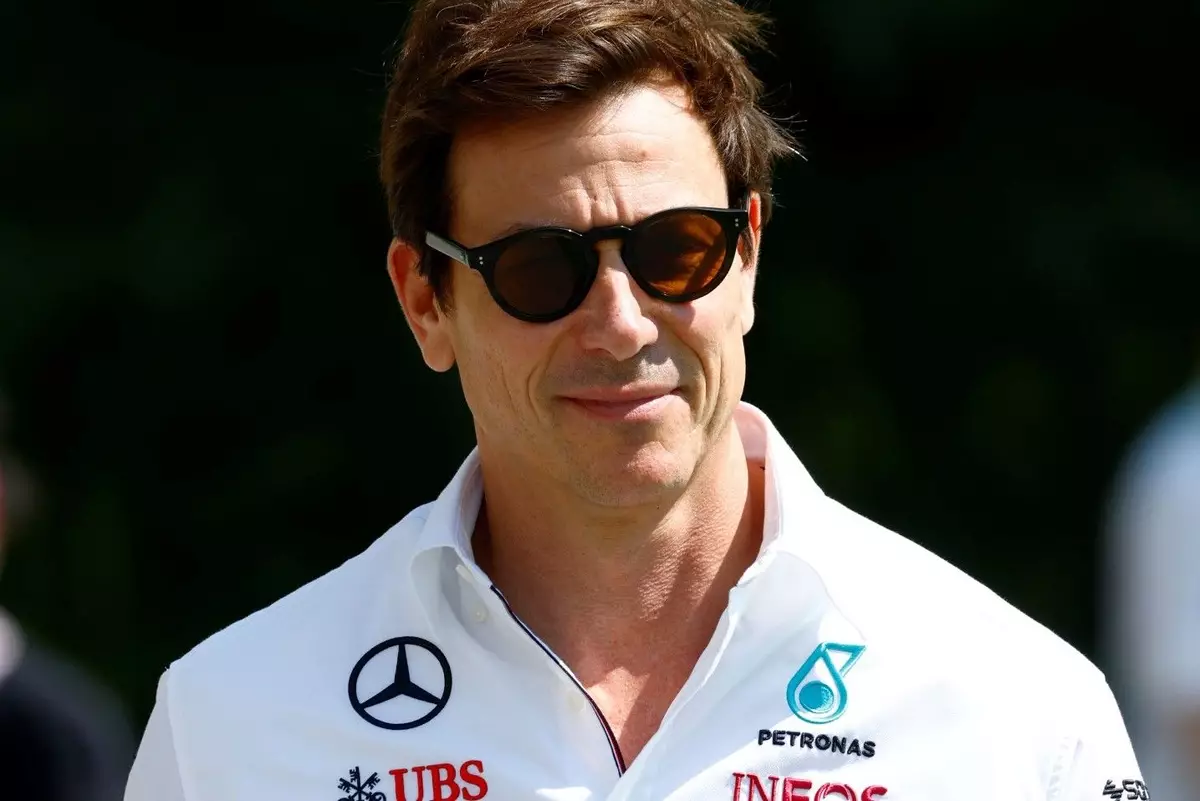In the world of Formula 1, the departure of a driver like Lewis Hamilton is bound to stir emotions and provoke widespread discussion. Toto Wolff, the team principal of Mercedes, recently found himself defending comments that could be misconstrued as relief or satisfaction regarding Hamilton’s exit from the team. As Hamilton prepares for his final races with Mercedes, he is set to transition to Ferrari, marking the end of an era that saw him clinch six World Championship titles since joining the team in 2013. Wolff’s clarification emphasizes the complexity of emotions involved in such a significant shift in both Hamilton’s career and Mercedes’ strategy.
Wolff articulated that Hamilton’s move could be seen in a positive light, given that it spares the team from the uncomfortable task of sidelining one of the sport’s most legendary figures. This perspective raises essential considerations about the natural evolution of talent in Formula 1 and the inherent pressures of staying competitive. The comments reflect not only Wolff’s awareness of Hamilton’s enduring skill but also the harsh realities of the sport, where performance and marketability intertwine closely.
Mercedes faces the imminent challenge of reshaping its roster alongside George Russell, who has demonstrated considerable potential. The decision to promote 17-year-old Andrea Kimi Antonelli from the Formula 2 ranks signifies a strategic pivot for the team, aiming to blend youthful exuberance with veteran wisdom. As Wolff put it, the short-term outlook for Hamilton’s departure—filled with uncertainties—might be overshadowed by the potential benefits of a fresh lineup that could rejuvenate the team in the long haul.
As Mercedes navigates through this transitional phase, it must recalibrate its goals and aspirations. The admission that the team has likely reached its ceiling for the current season—sitting fourth in the constructors’ standings—opens a dialogue about the team’s long-term vision. The focus on 2025 suggests that there is a tactical pivot towards developing a competitive edge in the coming seasons, taking into account advancements in both technology and driver capabilities.
Hamilton’s performance this season has been a mixed bag. While he boasts two race wins—most notably his emotional return to form at the British Grand Prix—there have been undeniable frustrations along the way. His triumph at the Belgian GP was overshadowed by the disqualification of teammate Russell, highlighting the unpredictability that can obscure the paths to success in this fast-paced sport. Both Hamilton and the Mercedes team have shared the burden of disappointment when the car has not delivered the expected performance.
Wolff’s assertion that aging affects all individuals in motorsport—including drivers—serves as an important reminder within this context. While Hamilton’s experience offers a myriad of advantages, there is a tinge of vulnerability that accompanies the passage of time. Despite this, Wolff acknowledges that Hamilton continues to operate at a high cognitive level, underscoring that the driver still possesses the sharpness required to compete effectively at the highest level.
As Hamilton prepares to bid farewell to Mercedes, the question surrounding his legacy at the team looms large. Will he leave behind a kingdom or a transition towards a new dynasty? For Wolff and his team, planning for life after Hamilton is imperative—to not only secure immediate results but to foster a strong foundation for the future.
The upcoming races will likely serve as a poignant closure to Hamilton’s journey at Mercedes. Both he and Wolff have emphasized the mutual respect and shared frustrations that have characterized their partnership. However, looking beyond this transition, it is essential for Mercedes to harness the experience gained during Hamilton’s tenure to cultivate new talent and devise innovative strategies. As Formula 1 evolves, change is not only inevitable but necessary for sustaining success in the competitive landscape of motorsport.
While the farewell to Hamilton signals the end of one chapter, it simultaneously opens the door to a promising future for Mercedes. With impending changes and fresh faces, the team’s commitment to excellence will be tested, as they strive to reclaim their spot at the pinnacle of Formula 1.


Leave a Reply